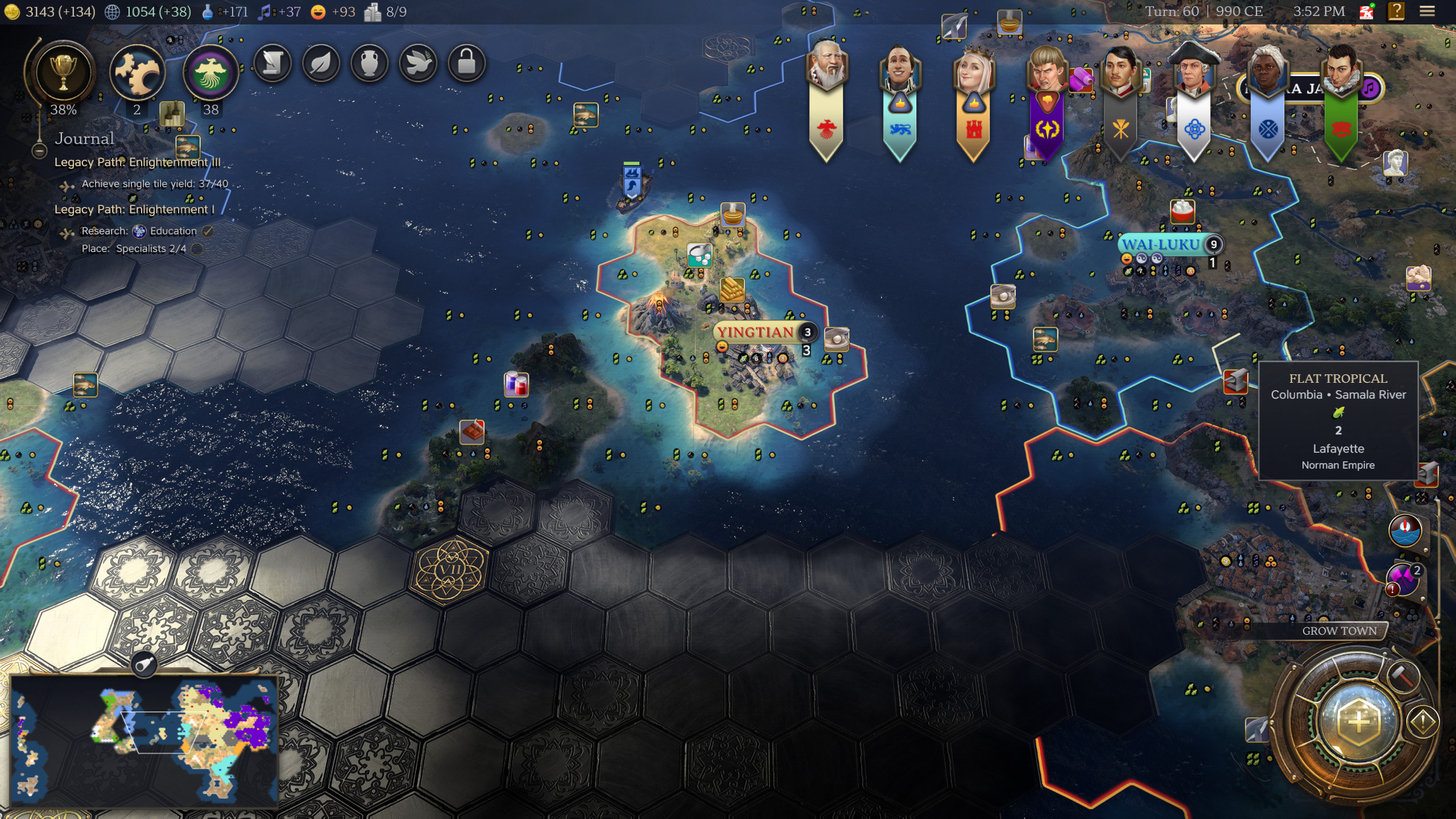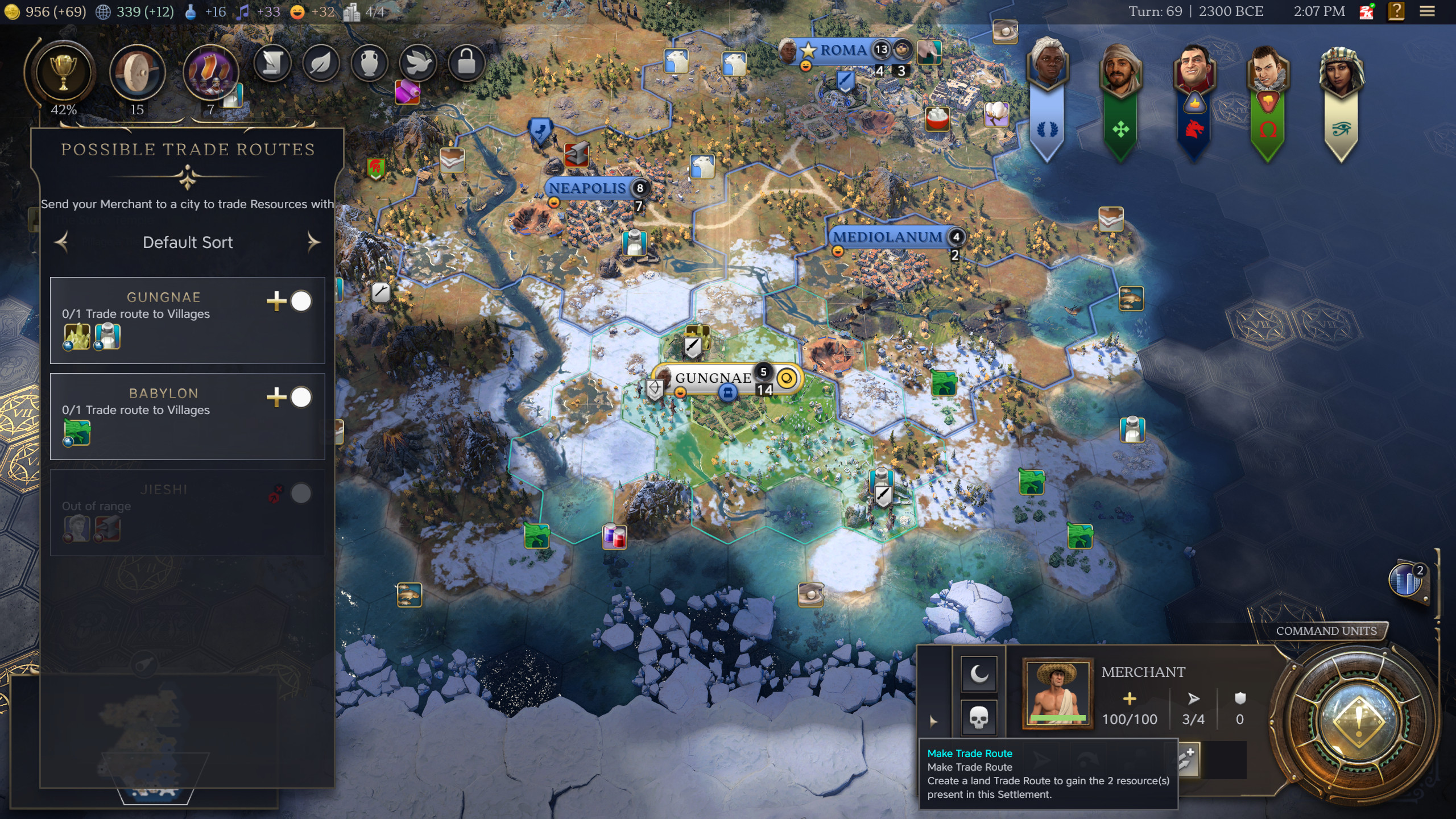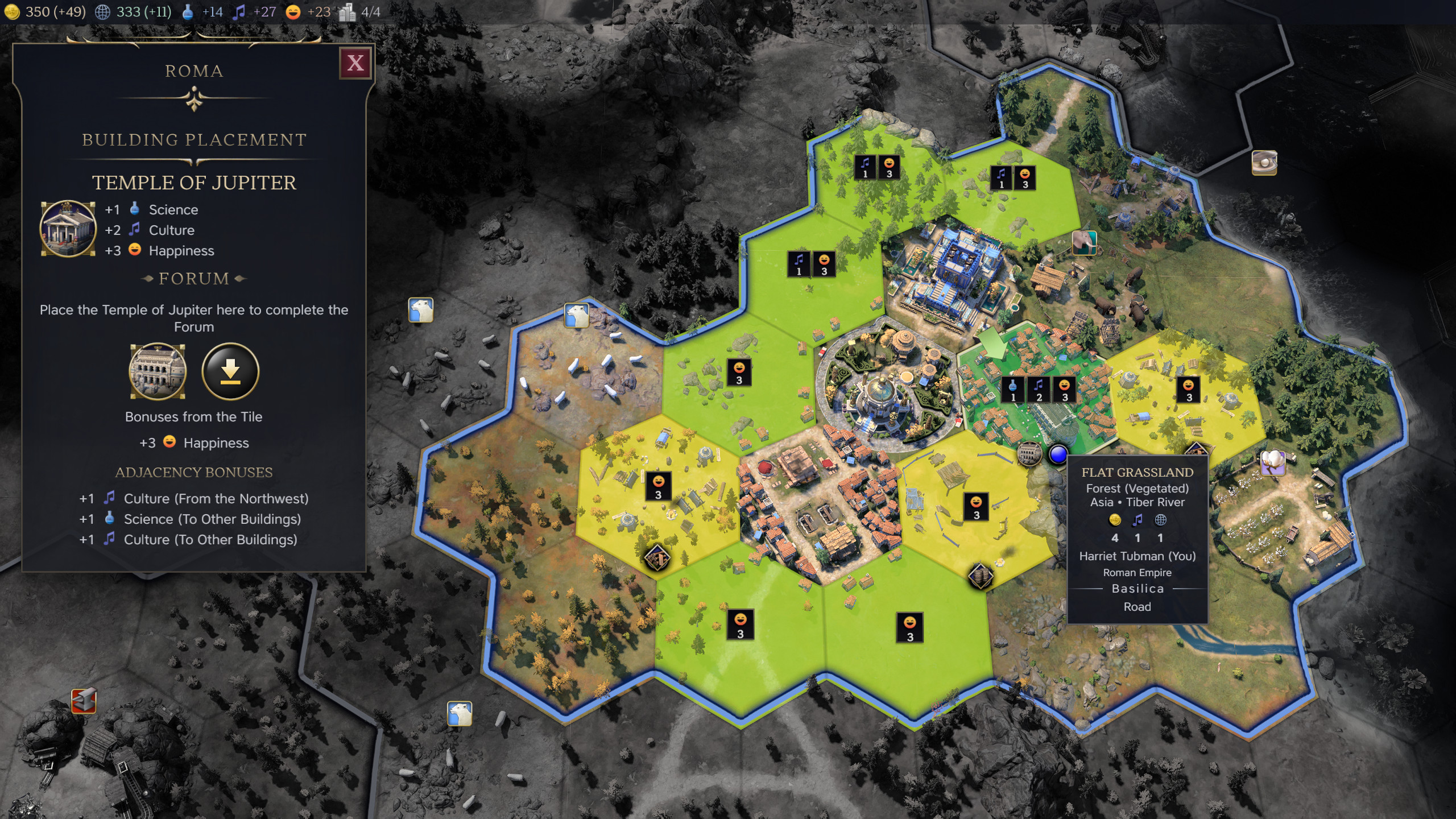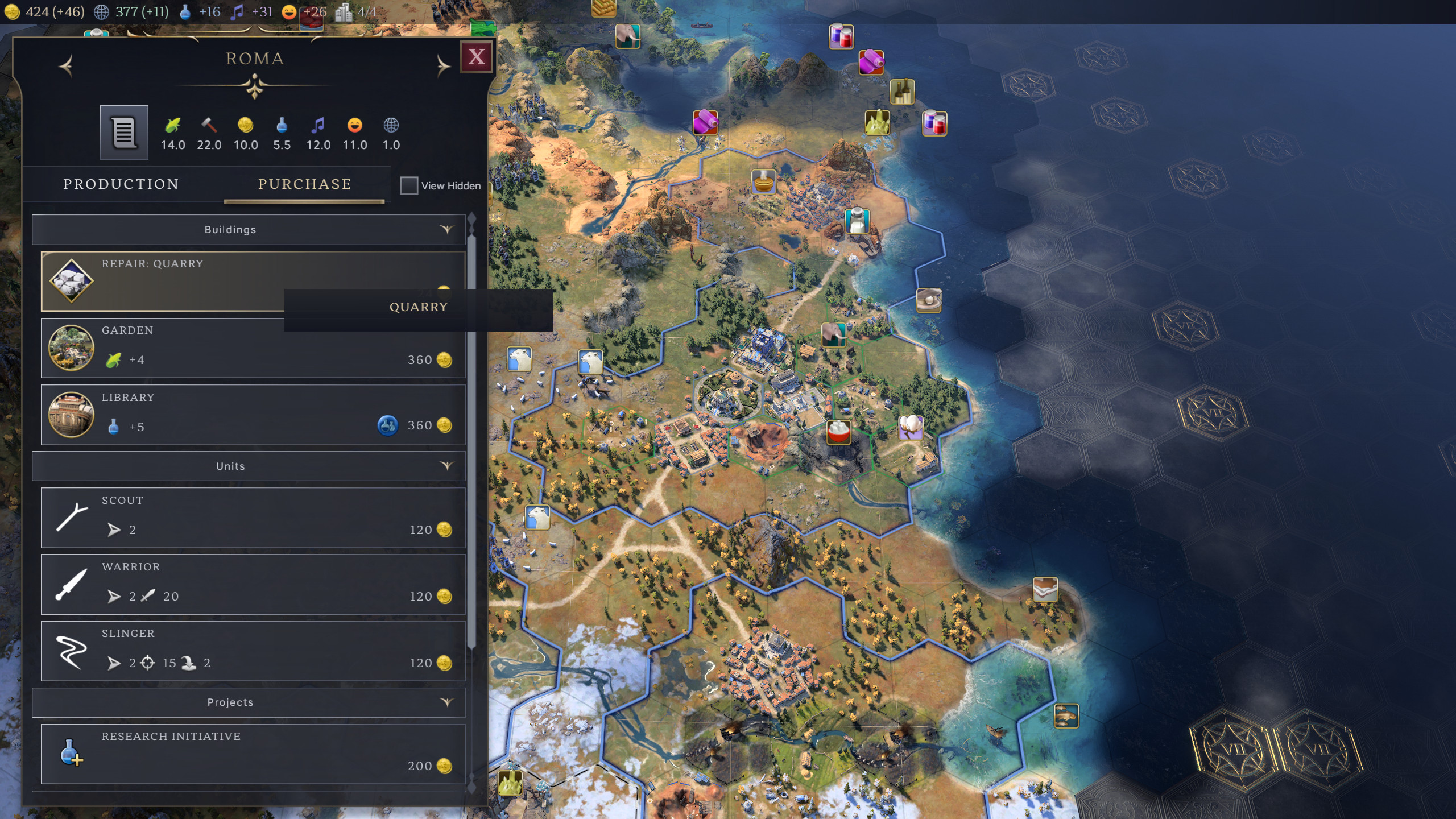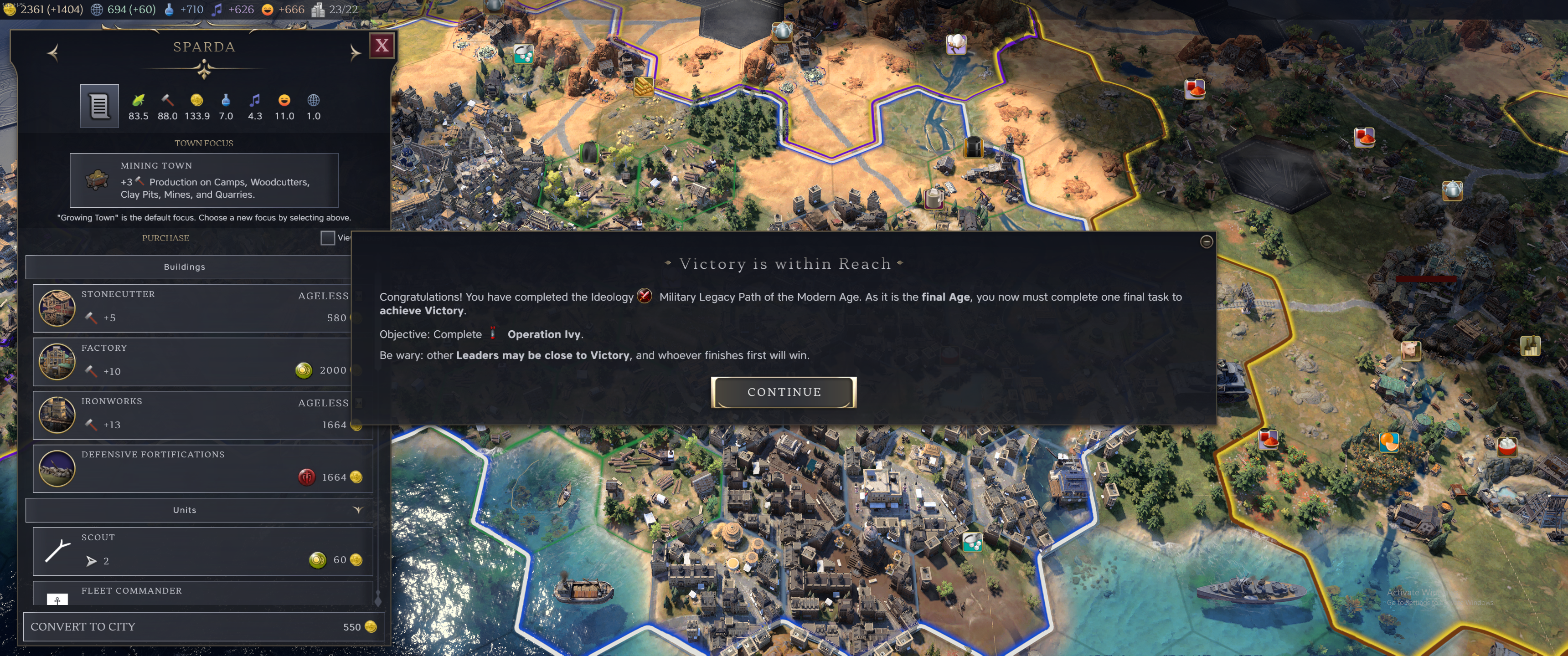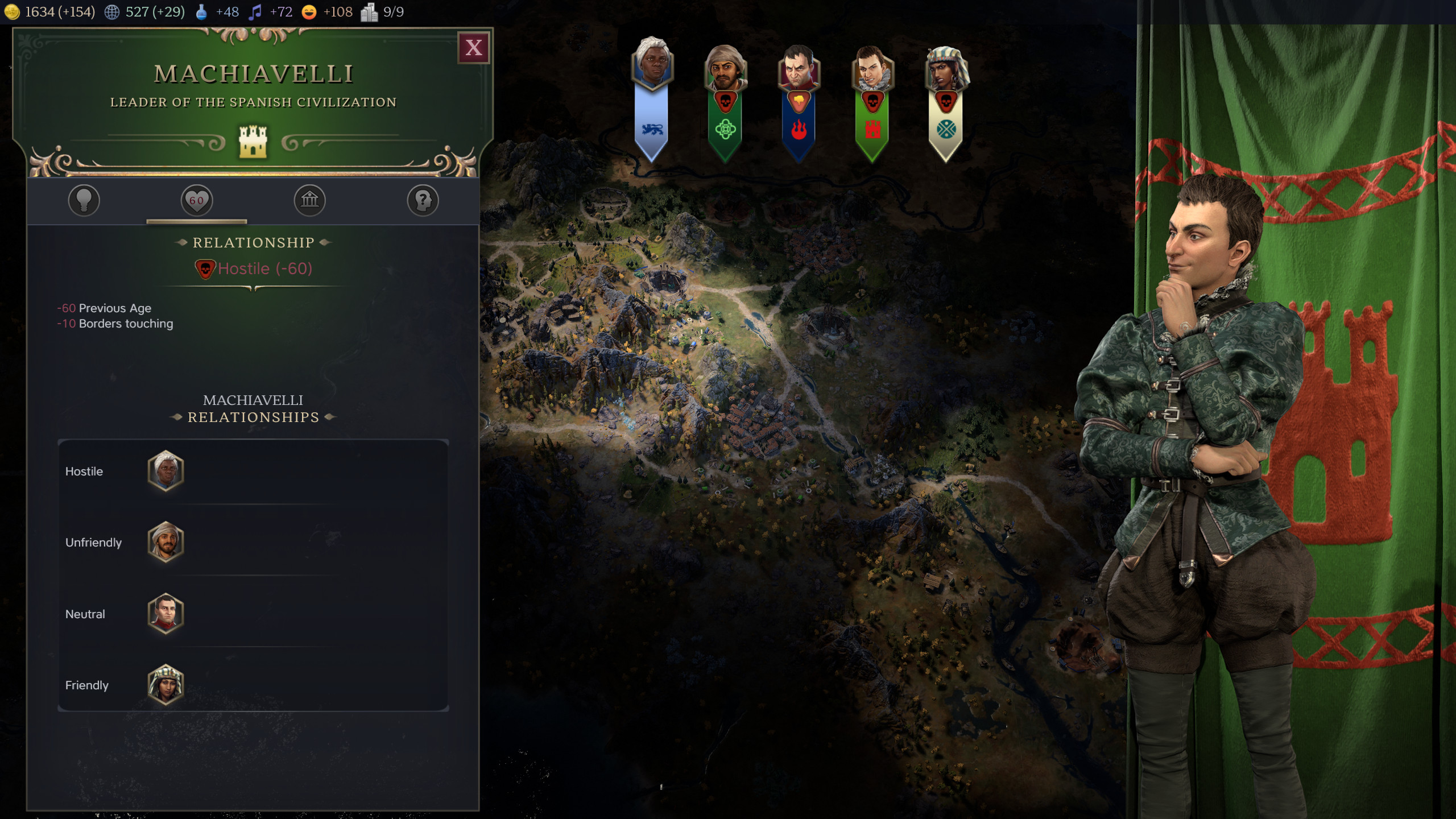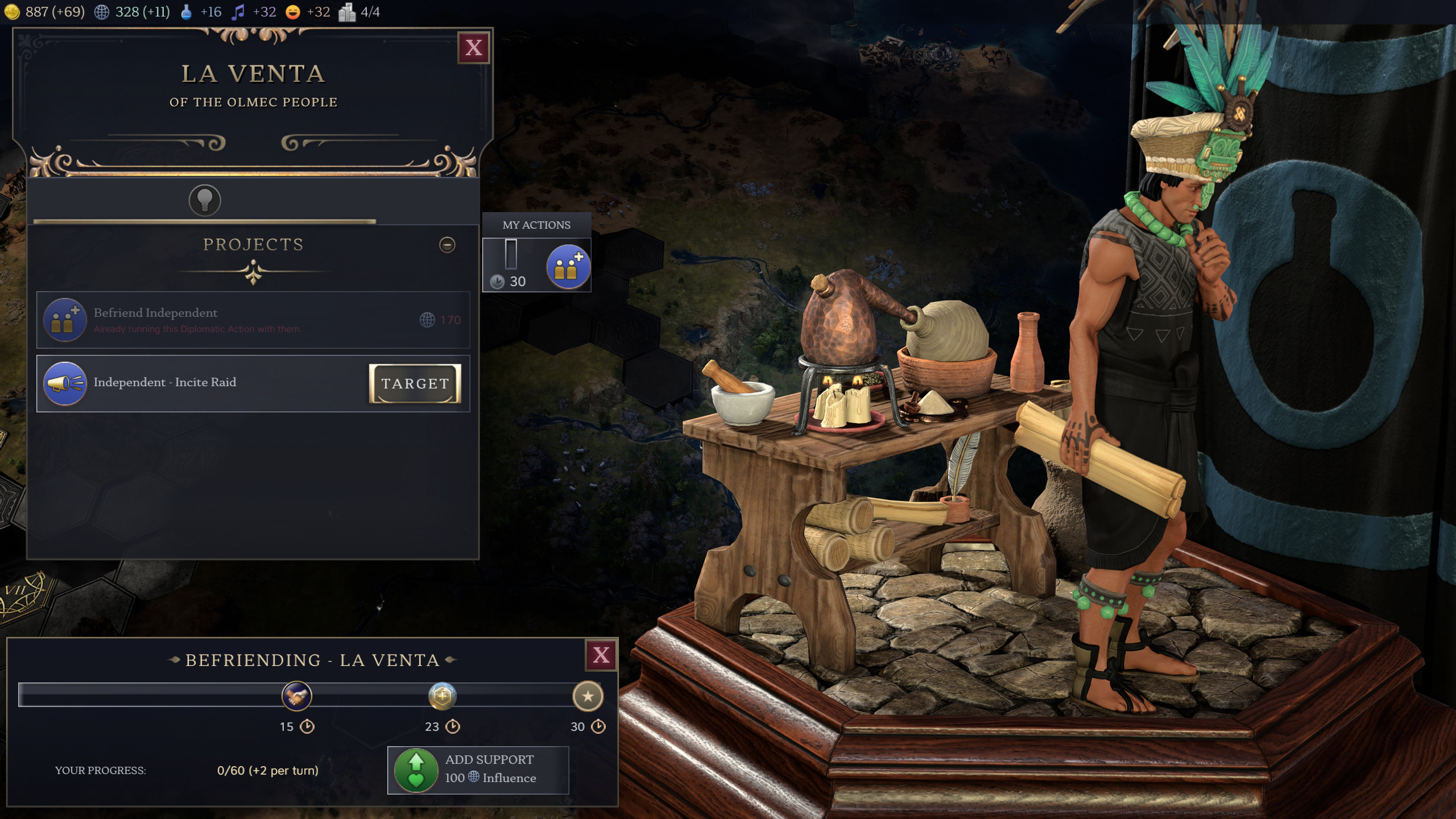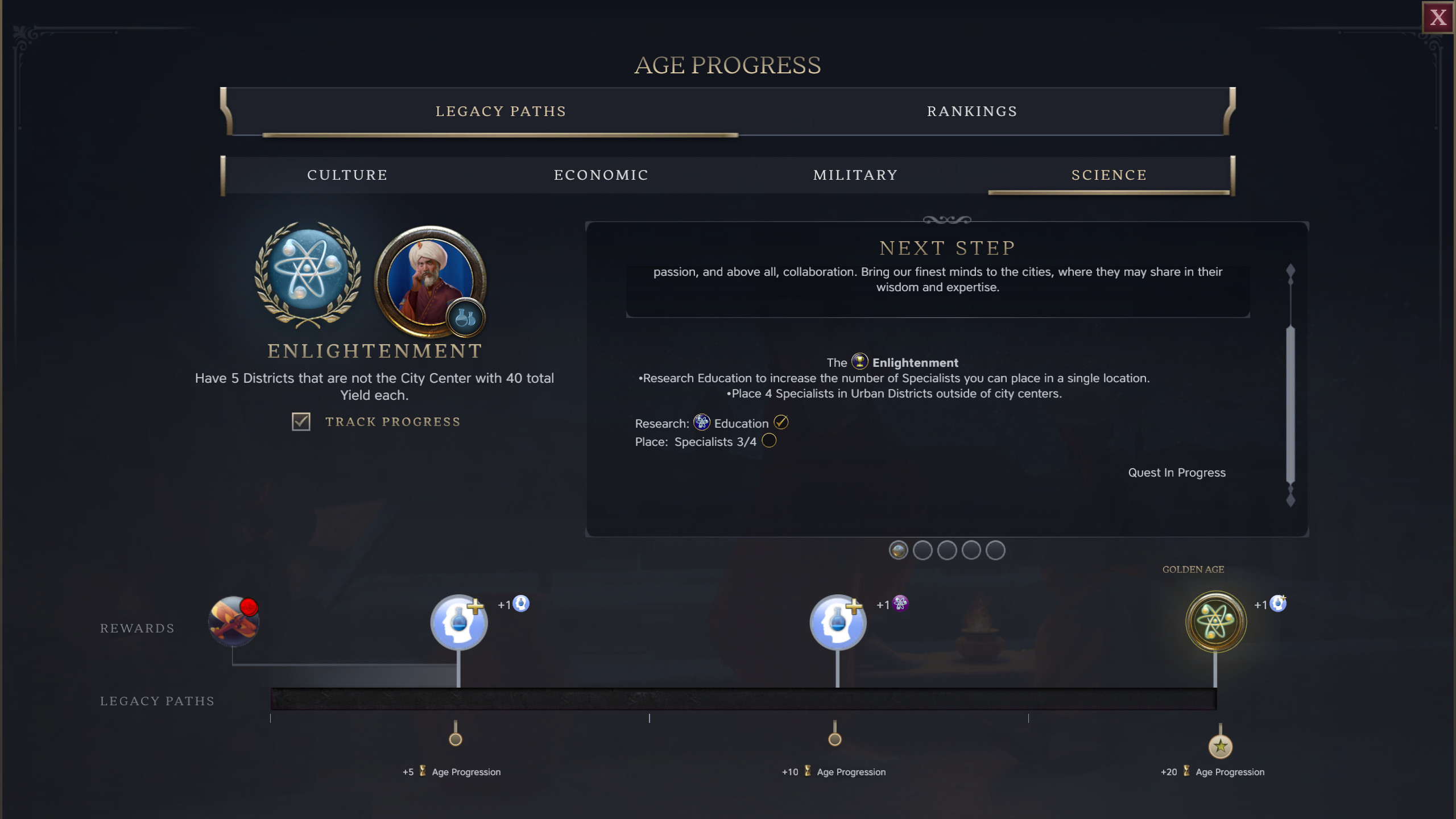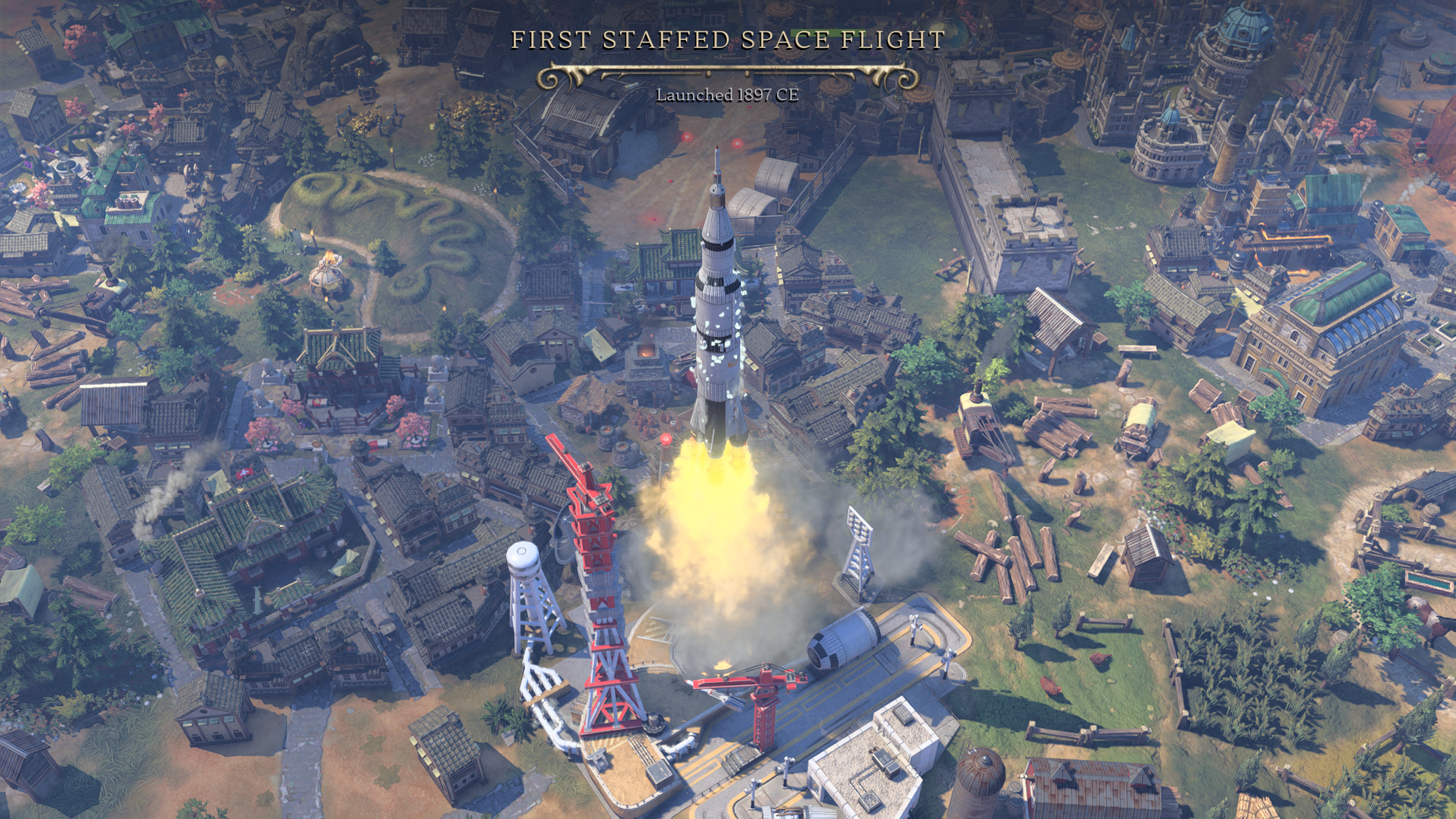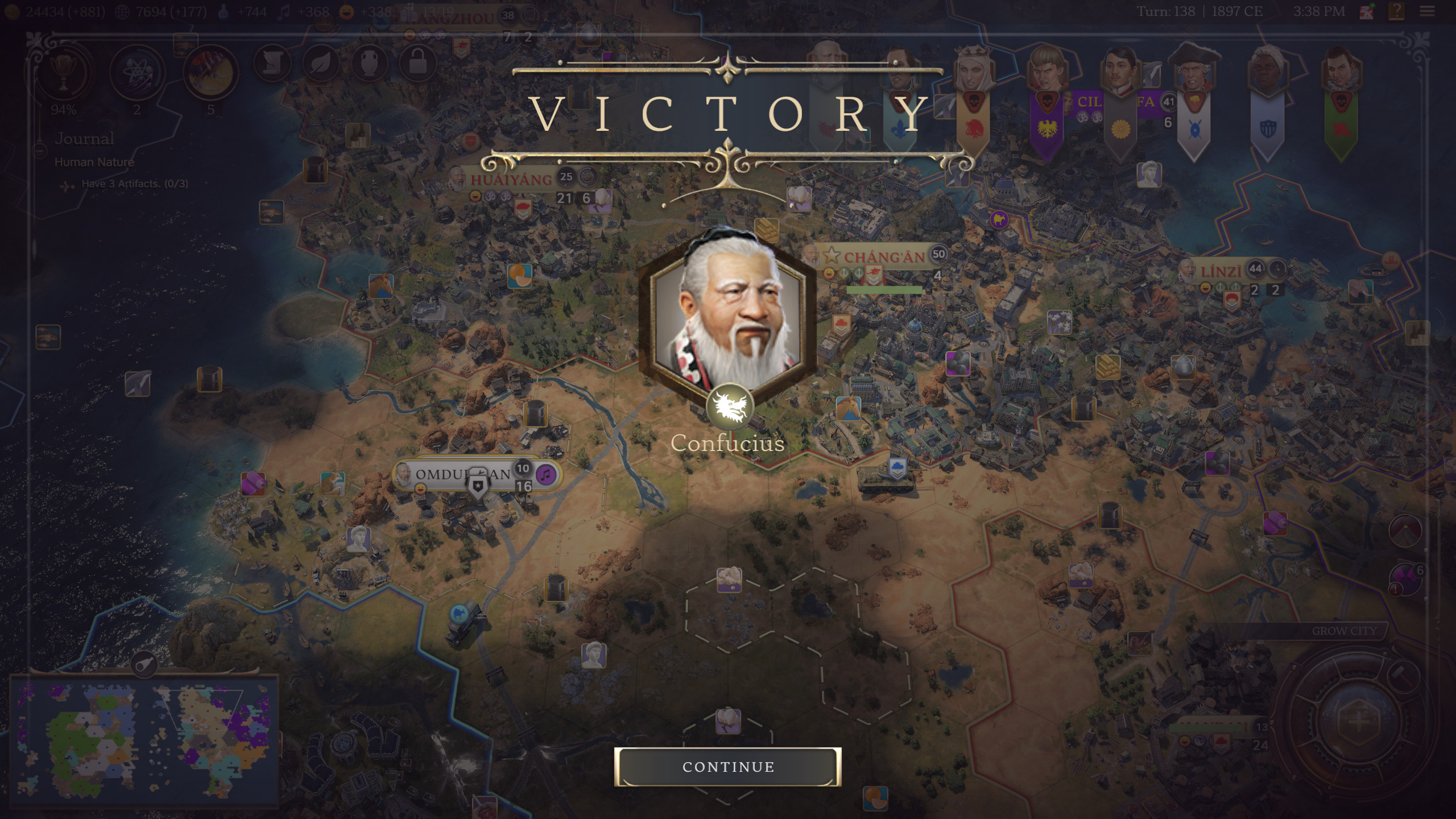
Civilization 7 is the next epic 4X strategy game headed our way on February 11, and it brings many new mechanics to the legendary series. With more than 60 hours of playtime racked up so far thanks to an early access review key, I've learned the hard way how to navigate these changes.
👉 Read my Civilization 7 review
Whether you're a complete Civ beginner or a veteran who's had plenty of experience with world domination, these tips and tricks will get you off to a strong start.
Geography, scouting, and trading
One of the first lessons I learned upon picking up Civilization 7 is the importance of geography and positioning. The developers thus decided to remove the Scout's auto-scout feature present in Civ 6, forcing players to keep a closer eye on what's being revealed around them.
Here are some tips and tricks involving geography and positioning I picked up during my time with the game.
1. The Scout again plays an integral role in the early and mid game
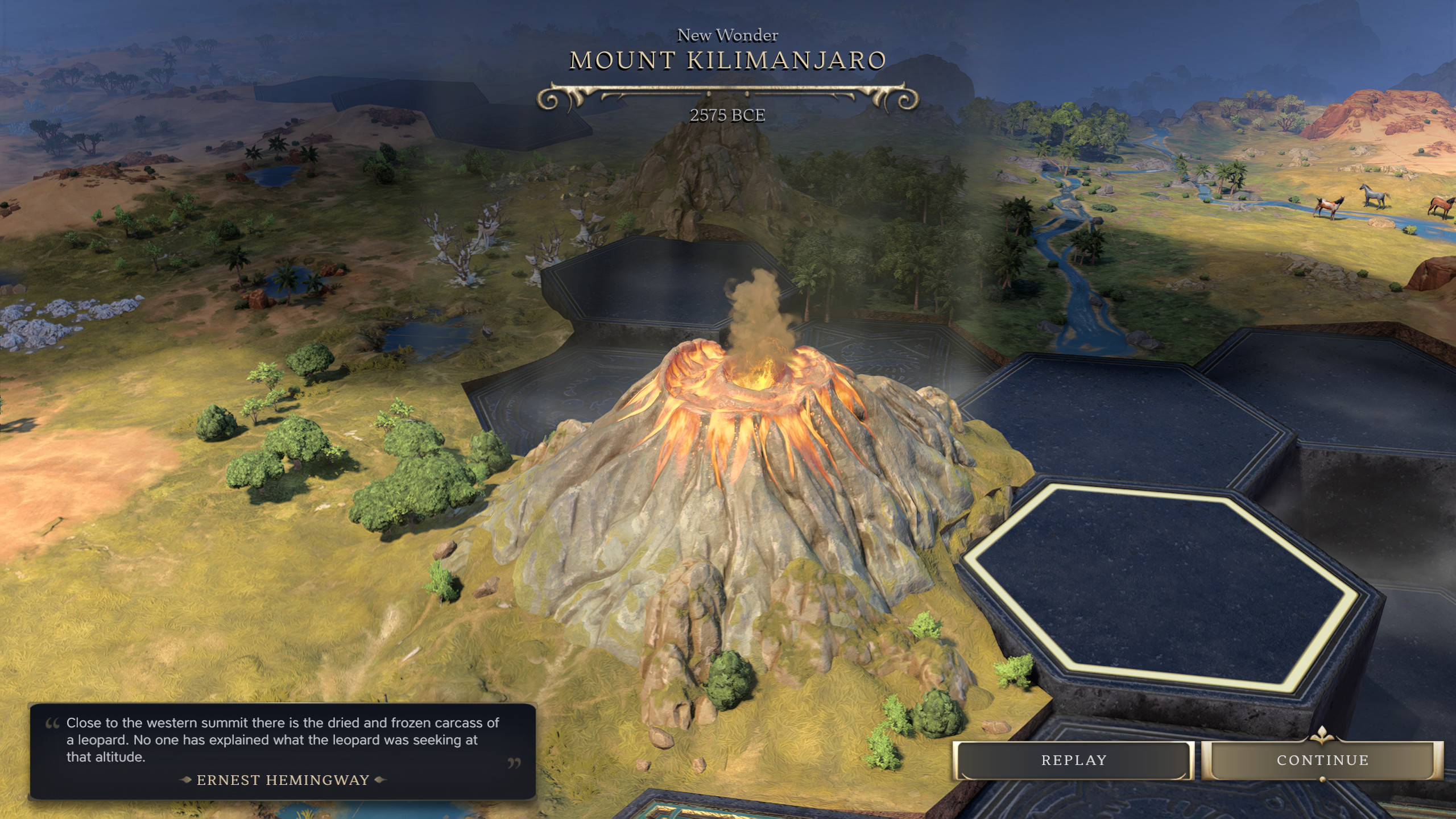
When scouting, you should look out for freshwater sources. A large river can provide access to the sea as well as support fishing boats, further boosted by a fishing quay development. Smaller rivers are better than nothing. You can use the map filter to show ideal Settlement locations, and Settlers come standard with the advanced view. The game usually does well suggesting the best spots for your settlements, but you can settle practically anywhere you wish.
You should keep track of strategic resources that can be captured within your borders, tiles with high natural yields on which you can develop, natural wonders that give bonuses to your civ, and natural defenses. Mountain tiles are impassible by ground units, while elevation changes and cliffs can create natural chokepoints for enemy troops.
All the latest news, reviews, and guides for Windows and Xbox diehards.
Many developments receive bonuses from specific nearby tiles, so don't be afraid to diversify your settlements with mountains, rivers, deserts, plains, and coasts.
Bonus tip: Watch for Discovery Tiles that offer early bonuses. They have a shimmering effect and some unique artwork on them. Moving a scout (or other unit) to these tiles presents you with two perk options.
2. Expand your civilization early and often
Civilization 7 isn't nearly as punishing as previous titles when it comes to expanding your civilization. Each player has a settlement limit that can be expanded via various means; as long as you remain at or below your limit, you won't experience any happiness penalties.
I've found that in the early game, creating Settlers as soon as they're available (once your capital reaches 5 population) is the best strategy. You've theoretically already scouted most of the land around your capital, so you should have a few prime spots picked out for new towns.
I recommend settling at least one town on the East and West coasts of your home continent. The Exploration Age puts a huge emphasis on "Distant Lands" and the bounty they hold, so you don't want to be stuck in the middle of a desert with no access to the sea.
Keep in mind that any enemy settlements you capture come under your rule. You can either raze the city over the course of a handful of turns, or you can keep the city as part of your expansion. This goes toward your settlement cap, so be sure to leave some breathing room if you're feeling particularly aggressive.
3. Don't be afraid to create small settlements only for their resources
Strategic resources in Civilization 7 — they show up with a unique badge on certain tiles — are incredibly important. They provide bonuses for everything from food to production to culture and science, and you want to be sure your cities and settlements are full of them at all times.
New resources appear in each age, further adding to the strategic angle. In the Modern Age, for example, factory resources become available, and they can offer your entire civilization some attractive perks. That's why it's important to expand; you never know where they'll show up.
Because of how the "Continents Plus" map generation is set up, you'll usually start on a rather large landmass with other leaders. Between your continent and the other — known as "Distant Lands" in the Exploration Age — there are several small islands housing strategic resources.
It might not seem like a great place to settle, but a small island with access to several "Distant Lands" resources can make a big difference. That's due to the Exploration Age's "Treasure Fleet" mechanic. When a coastal city or settlement has access to these resources, it'll automatically create Treasure Fleets that you must guide to safe homeland harbors to offload. This is part of the economic victory path, and you can get some useful Victory Points in the sector even if you're focusing elsewhere.
These small island settlements can also favor naval warfare, as you'll have a new base of operations in the middle of the ocean.
One last tip: Camels are a very valuable resource that expands a city's resource slot limit. While there are other avenues available to open up more slots, I recommend everyone try to get at least one or two camel tiles into their economy.
4. Use Traders to create roads between unconnected settlements
Whether through military conquest or savvy exploration, you now have a network of settlements surrounding your capital city. Time to start trading!
Traders in Civ 7 have a limit to how far they can travel, so having more towns usually means better opportunities. Like Scouts, Traders must be manually moved to the city with which you want to trade. Once your Trader has arrived, you can task it with setting up a trade route. From there it operates on its own.
You'll also notice that the Trader has a "Create Road" command. This is a lot more important than I first realized. Settlements, when founded, automatically create a road to your nearest population. However, that road might not take the trader straight to the city receiving its goods. You might also notice that resources from distant settlements — usually received through war or peace negotiations — can't be assigned elsewhere.
That's your cue to build a new road to optimally connect your network of settlements.
5. Use Influence points to add independent cities to your civilization
Each age features randomized independent nations dotted around the map. You'll undoubtedly discover them as you scout. Each independent nation has a focus — science, economy, military, or culture — and their reaction to you is seemingly randomized. Some are hostile and attack on sight, while others start out as friendly.
Your Influence points can be spent on befriending hostile independent states. With enough time, you'll eventually become suzerain of the state, which offers a list of bonuses based on the state's focus. From there, you can levy troops, promote growth, and even incorporate them into your civ using additional Influence points.
Independent states can be disbanded with military force, so it can be a bit of a gamble to spend Influence points if you're neighboring other aggressive leaders. You can be just a few turns away from being suzerain when another leader attacks and disbands the town.
You also need to watch out for other leaders attempting to beat you in the suzerain race. If you notice another leader has pulled ahead, you can spend more Influence to regain the lead. I've noticed that AI players are tricky in this regard, often waiting until the last couple of turns to dump points and steal away their fealty.
How to manage your cities and settlements
Civilization 7 is all about expanding your borders and bolstering your economy. Both cities and settlements play directly into the mechanic, and it seems that you need to pay more attention than ever to how they grow and expand their borders.
You start with one capital city that uses your production value to create units. A lower production value means it takes longer to build developments or create units.
Settlers then create settlements that start out small but quickly grow. Rather than using a production queue, settlement developments and units cost gold. Once a settlement reaches seven population, you can choose to give it a focus or turn it into a city at the cost of more gold.
Here are some tips and tricks to help you manage your cities and settlements.
1. Don't be afraid to focus your settlements
Settlements you found, capture, or coerce diplomatically, upon reaching 7 population, can be assigned a focus. This halts the settlement's natural growth and sends resources to the capital, so you want to be sure that you've sucked up all the strategic resources nearby before doing so.
Adding a settlement focus can seriously multiply its output. If it's a mining town, you can usually double production. The same goes for fishing towns located on a large river or coast. Have a settlement that's more urbanized? Boost your science and culture instead with a different focus.
I still don't know the opportune moment to switch a settlement to a city. The process requires gold, and the total is lowered depending on how much gold you've already spent to develop the settlement. If you have a strong economy, it makes sense to buy buildings before upgrading. On the other hand, if you're short on gold, adding another city that uses the production metric instead can be very beneficial.
2. Put more thought into how you grow your cities
When I first started discovering Civilization 7, I was plonking developments haphazardly. That doesn't work in the long run. Tiles you fully develop become urban quarters, building up the core of your city, while the outskirts remain rural. The game features unique quarters for each civ, and both pieces must be built on the same tile.
With all of the perks associated with developments, whether unique or general, it pays to give your city a bit of urban planning. You can seriously game the system, especially once Specialists are introduced to the game to give developed tiles a higher yield, and this directly plays into the science victory conditions.
With AI more aggressive than ever, you usually also want to add walls and fortifications to your cities and settlements. Armies can no longer capture a city without first dismantling all fortified tiles, so you can create a few quarters in strategic positions and force armies to attack.
Bonus tip: Try to balance production and food in your cities and settlements. You need a strong foundation to have success in other areas like culture and science.
3. Repair your developments
Civilization 7 isn't shy about bombarding players with natural disasters. Those rivers that provide fresh water to your city? Yeah, they'll flood and damage your developments. Settled near a dormant volcano? It just woke up, and it's spewing magma all over your developed quarters. A blizzard or tornado might roll in at any time, at any location, wreaking havoc on tiles nowhere near rivers or volcanos.
While the game lets you spend city production on repairs, it's much quicker to use gold. The cost usually isn't much, and your tiles are repaired instantly. This also leaves your cities free to produce other units and buildings.
The game will let you know when a natural disaster occurs within your borders, and you can react. Certain crises (more on that in a moment) aren't as visible, though they can do a lot of damage. I've lost troops to plagues before I noticed what was happening. Watch for smoke or pestilence pouring out of your tiles to know which ones need attention.
Do note that you cannot repair certain tiles when a disaster is ongoing. A blizzard will keep tiles down while it rages; the same goes for a plague.
4. Don't be afraid to overbuild in a new age
Civilization 7's new three-age split mechanic introduces "Ageless" and standard buildings. While Ageless developments like Granaries are beneficial throughout the entire game, other developments lose their bonuses when you move into the next age.
To solve the problem this presents, you can now build over unessential developments with newer buildings. The game doesn't exactly do a great job of explaining how this works, and I was hesitant to build over developments that I'd worked hard to create in the previous age. I was reassured by developers that it's rare to detrimentally overbuild.
This new mechanic reduces a city's urban sprawl, leaving rural tiles open to receive yields and to be boosted by their associated Ageless developments. Have a bunch of farms? Be sure to build a Granary. Have a bunch of woodcutters? Be sure to build a Saw Pit.
How to wage a successful war
Civilization 7 adds new Commander units, which significantly change warfare. The first you'll use is the Army Commander, but you'll also get access to Naval and Squadron Commanders as you progress.
Individual military units no longer receive XP — it all goes to the Commander who's within range. Each Commander has a set of skill trees that are unlocked as you level up, with bonuses to attack power, happiness, gold, etc. In my experience, having a Commander present is basically a necessity when waging war. The bonuses are that good.
Here are some tips and tricks for when things get gory.
1. Scouts and military units are key to a solid early game
Your first turn in Civilization 7 after founding your capital city should be spent producing a Scout who then begins discovering the map around you. Second, I recommend building at least one Warrior to protect your city and scout nearby tiles. Aggression arrives quickly in Civ 7. From there, you can produce or purchase more military units as required.
Some games seem to be more peaceful than others, and I can get away with one battalion assigned to a Commander. In other games, I find myself barely able to keep up with enemy armies.
2. Use Commanders to your advantage
Commanders become available after unlocking a specific Civic, and I believe you get a free one when first unlocked. If it dies, be sure to create another as soon as possible. War seems to be unavoidable in Civ 7, and Commanders are the best way to gain an advantage.
Their range of command can be boosted, and so can the slots available for grouping. Commanders have up to six slots for military units, and I use the new mechanics all the time. Not only does grouping units on a Commander make for less clutter and easier micromanagement, but it also can often negate movement penalties and get your armies where they need to be much faster.
Bonus tip: You don't need to manually move new troops into the orbit of your Commander. Use the Reinforcement command instead, which spends turns moving your units to the Commander automatically. When reinforcing a Commander, the units en route cannot be attacked.
3. Check leader alliances before declaring war
If an ally goes to war, you're forced to choose between declaring war on your ally's foe or ending the relationship. That works the other way around; if you declare war on an enemy, its allies will usually join in. I've got myself into some sticky situations by not checking alliances before attacking.
Sometimes war is unavoidable, but other times you might be tempted to capture an otherwise peaceful settlement for its resources or geographical location. Take a moment to open the leader menu and check alliances — you might save yourself from also going to war with the leader with the largest army.
4. Don't be afraid to throw around some Influence
Espionage and diplomacy are bundled together in Civilization 7, and nearly all related actions (or reactions) cost Influence points. Whether you're stealing a technology, starting a cultural festival, hindering research, or countering opposing diplomatic actions.
Balancing your own initiatives while keeping enough Influence points to counter others can be tough. I usually keep a couple of hundred points banked up to use in an emergency, while the rest is spent meddling in affairs and boosting my yields.
When you're at war, Influence points can be spent to turn your population's opinion and prevent war weariness. Some leaders, like Harriet Tubman, come with natural bonuses, but you'll usually need to purchase favor lest you see your civilization's happiness plummet.
5. Strategically aim your war resolutions
All wars must come to an end. I've found that spending Influence to counter war weariness — and thus forcing it back onto my enemy — is a quick way to end a fight. When peace is proposed, you must make an agreement with your enemy involving cities and settlements.
Sometimes peace can be achieved with both sides keeping their towns, while other times you'll be presented with what looks like a raw deal. Don't be afraid to try your luck against AI opponents! The towns on the table can be swapped out, and you can often get lucky with what you receive.
If the opponent doesn't give you what you want, you can always choose to continue the war.
How to game Civilization 7's Age Timer
Civilization 7 is split into three ages — Antiquity, Exploration, and Modern — with a soft reset in between. Military units unassigned to a Commander or without a settlement center to sit on are lost to time. All cities except your capital return to Settlement status. New independent nations spring up. There are new Tech and Civic trees to complete.
This is unlike previous Civ games that have a continuous run, and with the new mechanic comes some crucial tips.
1. Don't lose track of time
Civilization 7 introduces an Age Timer to deal with the split mechanic. It's moved ahead when players achieve Legacy points, complete missions, or research Future Tech or Future Civics. Upon reaching 100%, the age progresses or the game ends (if you're in the Modern Age).
Most games I've played have cut things very close, and you want to be sure that you're timing your development properly. Haven't yet completed your preferred Legacy Path to unlock a Golden Age? Try to keep the other leaders from advancing the timer until your part is completed. Influence points come in handy here.
Like other Civ games, you can win by completing specific military, science, culture, or economy missions. What you achieve in one age directly influences the next, so it's still a good idea to focus on one area throughout the game.
However, it seems like you can also win by having 20 Victory points total, no matter if they all come from different areas. I've found that mixing science and military is very effective; nothing like controlling the seas with destroyers and aircraft carriers while your enemy is still in the age of sail.
2. Don't miss out on unique Civics
Civilization 7 no longer has guardrails on leaders and civs. You can use any leader with any civ, and your civ changes in each age.
Each civilization has a unique set of Civics alongside the general ones available to all players. They can provide some clever bonuses and boosts throughout the rest of the game, and I recommend unlocking them before they're lost to the previous age.
3. Be ready to handle a crisis
When the Age Timer reaches (I think) 70%, a random crisis befalls each leader. Crisis policy slots are opened up, and you can choose from a handful of responses. In my experience, these responses range from helpful to outright ludicrous.
Crises aren't meant to ruin your game; they simply add another layer at a time when many players might be coasting to an Age end. Crises intensify as the Age Timer ticks up, forcing you to add more policies. They're reset when the Age ends.
Keeping an eye on the Age Timer allows you to prepare for a crisis. Boosting happiness and income is usually a good way to successfully stave off the crisis and get into the next age relatively unscathed.
Wrapping up
Civilization 7 is a massive game with strategies that run a lot deeper than you might think. And with all of the new major changes, employing your past Civilization knowledge won't always work out.
These tips and tricks will hopefully help you get a good start in Civ 7, and I'll come up with more to add as I get further into the game. Be sure to drop your own tips and tricks in the comments section!
Civilization VII
Civilization VII is a turn-based 4X strategy game launching on February 11, 2025. It's now available to preorder on all major platforms.
👉 See Standard/Deluxe/Founders Edition (PC) at CDKeys
👉 See Standard Edition (Xbox Series X|S) at CDKeys
👉 See Deluxe Edition (Xbox Series X|S) at CDKeys

Cale Hunt brings to Windows Central more than nine years of experience writing about laptops, PCs, accessories, games, and beyond. If it runs Windows or in some way complements the hardware, there’s a good chance he knows about it, has written about it, or is already busy testing it.
